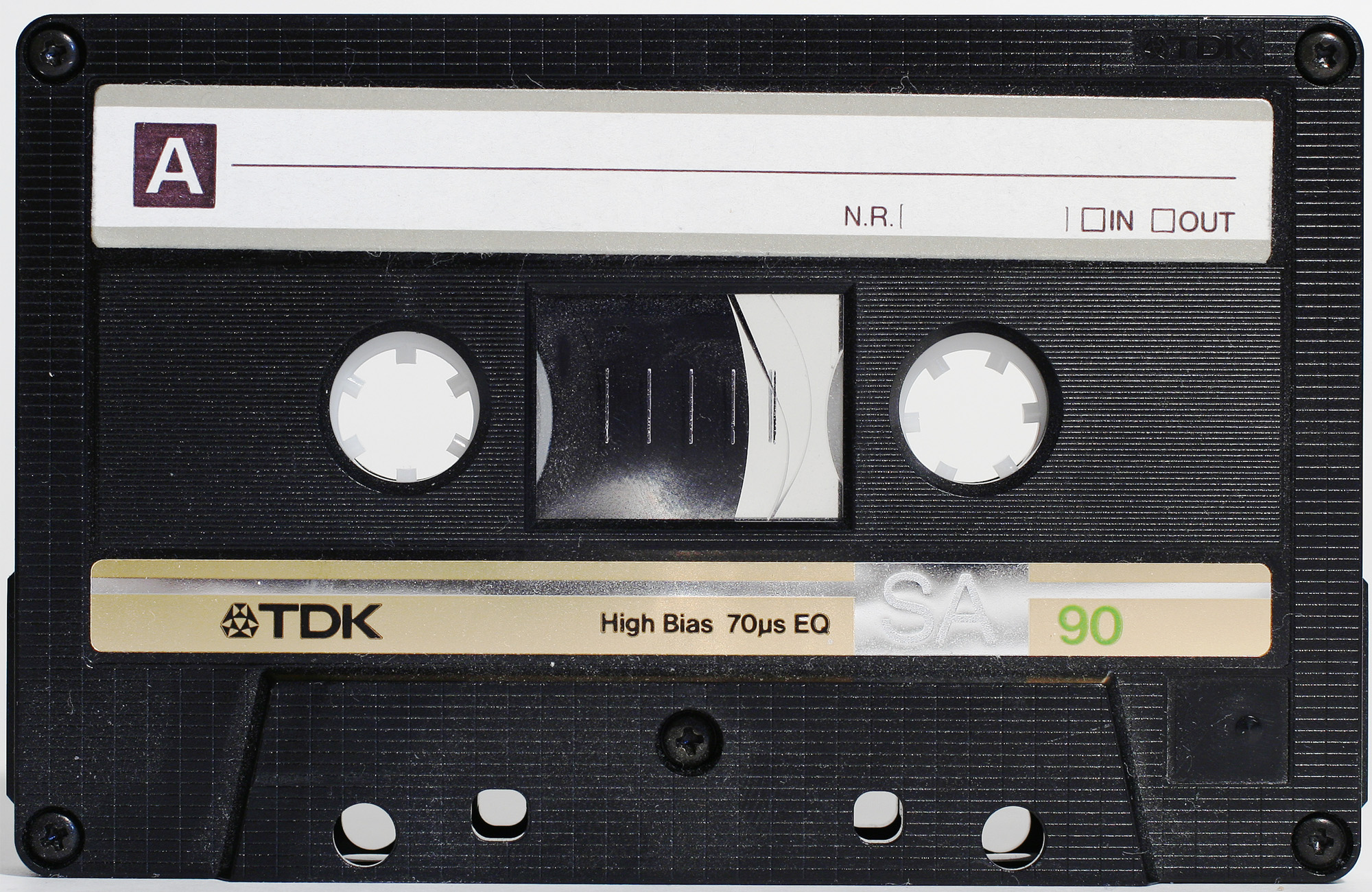|
Chō (Shizuka Kudo Song)
is a song recorded by Japanese singer Shizuka Kudo for her eleventh studio album, '' Doing''. It was released through Pony Canyon as the album's second and last single on March 21, 1996. The song featured on TV commercials for the Takano Yuri Beauty Clinic. The B-side, "Melody", served as ending theme to the 1996 AX tanpatsu drama ''Ren'ai Zenya: Ichido Dake''. "Chō" is the second in a consecutive trilogy of singles with titles made up of only one character: "Chō" is preceded by " 7" and followed by " Yū". It is Kudo's last single to be released in cassette format. Background "Chō" was co-written by Kudo, under the pseudonym Aeri, The Checkers's Naoyuki Fujii and Akihisa Matsūra. It is written in the key of A minor. Kudo's vocals span two octaves; from A3 to E5 in modal voice, and A5 in head voice. During the recording, Kudo suggested a few changes to the melody to Fujii, who chiefly worked on the demo for the track, which were kept on the final cut of the song. "Chō" is ... [...More Info...] [...Related Items...] OR: [Wikipedia] [Google] [Baidu] |
Shizuka Kudo
, known by her maiden name , is a Japanese singer, actress and former idol, born in Hamura, Tokyo, Japan. She was a member of Onyanko Club between May 1986 and September 1987 and went on to have a successful solo career with 11 number-one hits. Biography Kudo began her singing career at the age of 14 as a member of three-piece pop unit Seventeen Club consisted of runners-up from the 1984 Miss Seventeen Contest organized by Japanese teen magazine ''Seventeen'', which Shueisha publishes. They had two singles released by CBS/Sony Records in 1985. Their first single "Su Ki Futari Tomo!" was released on 21 January 1985, and was used in television advertisements for snack food products "Suzuki Kun" and "Sato Kun" manufactured and sold by S&B Foods. The second single "Baajin Kuraishisu (Virgin Crisis)" was released on 25 August 1985. Its lyrics were written by Sunplaza Nakano-kun, who was a lead singer of Japanese rock band Bakufu Slump. Kudo later said that she hated the second ... [...More Info...] [...Related Items...] OR: [Wikipedia] [Google] [Baidu] |
A Minor
A minor is a minor scale based on A, B, C, D, E, F, and G. Its key signature has no flats or sharps. Its relative major is C major and its parallel major is A major. The A natural minor scale is: Changes needed for the melodic and harmonic versions of the scale are written in with accidentals as necessary. The A harmonic minor and melodic minor scales are: Scale degree chords The scale degree chords of A minor are: * Tonic – A minor * Supertonic – B diminished * Mediant – C major * Subdominant – D minor * Dominant – E minor * Submediant – F major * Subtonic – G major Well-known compositions in A minor *Johann Sebastian Bach ** English Suite No. 2, BWV 807 ** Sonata No. 2 in A minor, BWV 1003 ** Partita in A minor, BWV 1013 ** Violin Concerto in A minor, BWV 1041 ** Allein zu dir, Herr Jesu Christ, BWV 33 *Ludwig van Beethoven ** Violin Sonata No. 4, Op. 23 ** String Quartet No. 15, Op. 132 ** Bagatelle in A minor, "Für Elise" ... [...More Info...] [...Related Items...] OR: [Wikipedia] [Google] [Baidu] |
Songs With Lyrics By Shizuka Kudo
A song is a musical composition performed by the human voice. The voice often carries the melody (a series of distinct and fixed pitches) using patterns of sound and silence. Songs have a structure, such as the common ABA form, and are usually made of sections that are repeated or performed with variation later. A song without instruments is said to be a cappella. Written words created specifically for music, or for which music is specifically created, are called lyrics. If a pre-existing poem is set to composed music in the classical tradition, it is called an art song. Songs that are sung on repeated pitches without distinct contours and patterns that rise and fall are called chants. Songs composed in a simple style that are learned informally by ear are often referred to as folk songs. Songs composed for the mass market, designed to be sung by professional singers who sell their recordings or live shows, are called popular songs. These songs, which have broad appeal, are oft ... [...More Info...] [...Related Items...] OR: [Wikipedia] [Google] [Baidu] |
1996 Singles
1996 was designated as: * International Year for the Eradication of Poverty Events January * January 8 – A Zairean cargo plane crashes into a crowded market in the center of the capital city of the Democratic Republic of the Congo, Kinshasa, killing around 300 people. * January 9– 20 – Serious fighting breaks out between Russian soldiers and rebel fighters in Chechnya. * January 11 – Ryutaro Hashimoto, leader of the Liberal Democratic Party, becomes Prime Minister of Japan. * January 13 – Italy's Prime Minister, Lamberto Dini, resigns after the failure of all-party talks to confirm him. New talks are initiated by President Oscar Luigi Scalfaro to form a new government. * January 14 – Jorge Sampaio is elected President of Portugal. * January 16 – President of Sierra Leone Valentine Strasser is deposed by the chief of defence, Julius Maada Bio. Bio promises to restore power following elections scheduled for February. * January ... [...More Info...] [...Related Items...] OR: [Wikipedia] [Google] [Baidu] |
Oricon
, established in 1999, is the holding company at the head of a Japanese corporate group that supplies statistics Statistics (from German language, German: ', "description of a State (polity), state, a country") is the discipline that concerns the collection, organization, analysis, interpretation, and presentation of data. In applying statistics to a s ... and information on music and the music industry in Japan and Western music. It started as , which was founded by Sōkō Koike in November 1967 and became known for its music charts. Oricon Inc. was originally set up as a subsidiary of Original Confidence and took over the latter's Oricon record charts in April 2002. The charts are compiled from data drawn from some 39,700 retail outlets () and provide sales rankings of music CDs, DVDs, electronic games, and other entertainment products based on weekly tabulations. Results are announced every Tuesday and published in ''Oricon Style'' by subsidiary Oricon ... [...More Info...] [...Related Items...] OR: [Wikipedia] [Google] [Baidu] |
Oricon Singles Chart
The Oricon Singles Chart is the Japanese music industry-standard Single (music), singles popularity chart issued daily, weekly, monthly and yearly by Oricon. Chart rankings are based on physical singles' sales. Until 2017, Oricon did not track download sales. In Japan, physical sales decreased sharply in the 2000s, while download sales hit three to four times the amount of single sales. In November 2017, Oricon introduced its first digital songs chart, separate from its main physical singles chart. On December 24, 2018, Oricon launched a streaming chart, and introduced a combined singles chart that utilizes physical single sales, downloads, and streams. Original Confidence Inc., the original Oricon company, was founded by the former Snow Brand Milk Products promoter Sōkō Koike in 1967. That November, the company began publishing a singles chart on an experimental basis. Entitled . The chart became official on January 4, 1968. Charts are published every Tuesday in Oricon Style and ... [...More Info...] [...Related Items...] OR: [Wikipedia] [Google] [Baidu] |
A-side
The A-side and B-side are the two sides of vinyl records and cassettes, and the terms have often been printed on the labels of two-sided music recordings. The A-side of a single usually features a recording that its artist, producer, or record company intends to be the initial focus of promotional efforts and radio airplay, with the aim of it becoming a hit record. The B-side (or "flip-side") is a secondary recording that typically receives less attention, although some B-sides have been as successful as, or more so than, their A-sides. Use of this language has largely declined in the 21st century as the music industry has transitioned away from analog recordings towards digital formats without physical sides, such as downloads and streaming. Nevertheless, some artists and labels continue to employ the terms ''A-side'' and ''B-side'' metaphorically to describe the type of content a particular release features, with ''B-side'' sometimes representing a "bonus" track or o ... [...More Info...] [...Related Items...] OR: [Wikipedia] [Google] [Baidu] |
Compact Cassette
The Compact Cassette, also commonly called a cassette tape, audio cassette, or simply tape or cassette, is an analog magnetic tape recording format for audio recording and playback. Invented by Lou Ottens and his team at the Dutch company Philips, the Compact Cassette was released in August 1963. Compact Cassettes come in two forms, either containing content as a prerecorded cassette (''Musicassette''), or as a fully recordable "blank" cassette. Both forms have two sides and are reversible by the user. Although other tape cassette formats have also existed—for example the Microcassette—the generic term ''cassette tape'' is normally used to refer to the Compact Cassette because of its ubiquity. From 1983 to 1991 the cassette tape was the most popular audio format for new music sales in the United States. Compact Cassettes contain two miniature spools, between which the magnetically coated, polyester-type plastic film (magnetic tape) is passed and wound—essentia ... [...More Info...] [...Related Items...] OR: [Wikipedia] [Google] [Baidu] |
Doing (album)
''Doing'' (stylized as ''doing'') is the eleventh studio album by Japanese singer Shizuka Kudo. It was released on May 17, 1996, through Pony Canyon. The album's title is a nod to Kudo's active lifestyle and busy work schedule at the time of recording the album, which she was "doing" while filming two movies. Critical reception Kudo received acclaim for her vocal performance throughout the album: CDJournal critics praised her singing in a put-on "coqquetish" lisping voice, as well as regarding her low notes on " 7" as well executed, and noted that Kudo's voice is best suited for ballads, despite also performing well on the more uptempo tracks of the record. Commercial performance ''Doing'' debuted at number 16 on the Oricon Albums Chart The Oricon Albums Chart is the Japanese music industry standard albums popularity chart issued daily, weekly, monthly and yearly by Oricon. Oricon originally published LP, CT, Cartridge and CD charts prior to the establishment of the Oricon A ... [...More Info...] [...Related Items...] OR: [Wikipedia] [Google] [Baidu] |
Japanese Television Drama
, also called or J-drama, are television programs that are a staple of Television in Japan, Japanese television and are broadcast daily. Format All major Television networks, TV networks in Japan produce a variety of Drama (genre), drama series including Romance film, romance, Television comedy, comedy, Detective fiction, detective stories, Japanese horror , horror, jidaigeki, Thriller (genre), thriller, Boys' love, BL, and many others. Single episode, or "tanpatsu" dramas that are usually two hours in length are also broadcast. For special occasions, there may be a one or two-episode drama with a specific theme, such as one produced in 2015 for the 70-year anniversary of Surrender of Japan, the end of World War II. Japanese drama series are broadcast in three-month seasons: winter (January–March), spring (April–June), summer (July–September), and autumn or fall (October–December). Some series may start in another month though it may still be counted as a series of a s ... [...More Info...] [...Related Items...] OR: [Wikipedia] [Google] [Baidu] |

